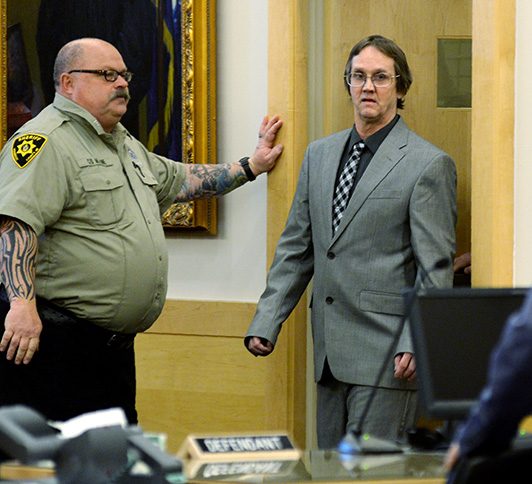The state’s highest court will hear arguments Wednesday in the appeal of the man convicted of killing a 16-year-old girl in East Millinocket in 1980.
Philip Scott Fournier, a longtime suspect in the teenager’s death, was charged and arrested in 2016, 36 years after the killing.
He was convicted of murder by Superior Court Justice Ann Murray after a bench trial in February in Bangor. Murray sentenced Fournier to 45 years in prison.
Joyce McLain went out for a jog on Aug. 8, 1980, and never came home. Her body was found behind the Schenck High School soccer fields in a wooded area near a row of power lines. She was mostly naked and the back of her skull had been crushed with a blunt object.
At the time of her death, McLain was a sophomore at Schenck. She was an honor student, a cheerleader, a musician and an athlete.
Her disappearance and the attempts by police to solve her murder were complicated by powerful thunderstorms that may have washed away evidence at the crime scene. After the discovery of her body, police gleaned no forensic evidence that connected Fournier to the scene. His conviction was based solely on circumstantial evidence and witness testimony, including from four people who said Fournier had confessed to the crime over the years.
In court filings, Fournier’s attorney, Rory McNamara, seeks to poke holes in the trial process, and raises four points that he says should lead to a vacated judgment or a new trial.
McNamara wrote that the lower court erred when it did not allow arguments and evidence suggesting an alternative suspect, and failed to explore why a police officer chose not to arrest Fournier 37 years ago when he made incriminating statements. His third point focuses on an incriminating statement Fournier made to a local pastor, arguing that Fournier never waived his religious privilege to keep that conversation private and it should have therefore been excluded from the trial. He also argues the court erred when it made a determination about Fournier’s whereabouts at a house party near the time of the murder.
The state argues that the trial court did not make errors, and that Fournier’s conviction and sentence should stand. In all, Fournier was interviewed by police 22 times, and was charged only after investigators turned up new evidence and a new witness who said Fournier admitted to having killed McLain and eluding arrest and responsibility during the investigation.
Send questions/comments to the editors.





Comments are no longer available on this story